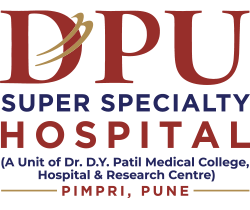Preparing for Laparoscopic Surgery: What You Need to Know

Laparoscopic surgery, often referred to as minimally invasive surgery, has revolutionised the medical field, offering patients quicker recovery times, smaller scars, and reduced discomfort. However, like any surgical procedure, proper preparation is crucial to ensure a smooth experience and successful outcome.
If you're scheduled for laparoscopic surgery, selecting the right laparoscopic surgery hospital is the first step towards a smooth and successful procedure. This blog will guide you through everything from understanding the basics of laparoscopic surgery to knowing what to expect before, during, and after your surgery.
Key Benefits of Laparoscopic Surgery
Laparoscopic surgery, commonly known as minimally invasive surgery, is a sophisticated surgical technique that involves making small incisions, typically no more than half an inch, to perform various surgical procedures. Here are some key benefits of this surgery you should consider:
- Less Pain and Discomfort: Smaller incisions cause patients to experience significantly less pain than traditional open surgery, which can often reduce the need for postoperative painkillers.
- Shorter Hospital Stays: The minimally invasive nature of the surgery allows for shorter hospital stays, often enabling patients to return home within a few days.
- Quicker Recovery Times: Patients recover much faster, resuming daily activities and working more quickly, which economically benefits both the individual and society.
- Reduced Scarring: Smaller incisions result in minimal scarring, which is not only cosmetically preferable but also reduces the risk of wound infections and hernias post-surgery.
- Less Internal Scarring: Laparoscopic techniques cause less trauma to the internal tissues, resulting in fewer adhesions—a common complication of traditional surgeries where internal scar tissue forms and can cause future complications.
Pre-Surgery Preparations
- Medical Evaluations: Comprehensive medical evaluations are necessary before your laparoscopic surgery. These include blood tests, imaging tests, and sometimes specialised assessments, depending on your health condition and the type of surgery. These evaluations help ensure that you are fit for surgery and assist surgeons in planning the procedure.
- Discussing Medications: It's crucial to inform your doctor about all your medications, including over-the-counter and herbal supplements. Some medications need to be stopped or adjusted before the surgery to avoid complications.
- Fasting: You will be required to fast—no food or drink—for several hours before the surgery, usually after midnight on the day of the operation. This is to prevent the risk of aspiration (inhaling stomach contents into the lungs) during anaesthesia.
- Preparing Your Home: Since you'll need to rest after surgery, it's a good idea to prepare your home for your return. This could include arranging for someone to help you, prepping meals, and placing frequently used items at an easily accessible height.
Day of Surgery Expectations
- Arrival at the Hospital: On the day of your surgery, arrive at the laparoscopic surgery hospital well in time. Bring all necessary paperwork and any medical directives. You will check in and then change into a hospital gown.
- Anaesthesia: Before the surgery begins, you'll meet with the anesthesiologist to discuss the anaesthesia plan. Laparoscopic surgery usually requires general anaesthesia, which means you'll be asleep throughout the procedure.
- The Surgery: During the surgery, the surgeon will make small incisions in your abdomen. Gas often inflates your abdomen to give the surgeon a better view and more room to work. The laparoscope and other surgical instruments are inserted through these incisions. The surgeon monitors the surgery on a video screen.
- Post-Operation: After the surgery, you will be taken to a recovery room, where your vital signs are monitored as you wake up from anaesthesia. Most laparoscopic surgeries are outpatient, meaning you might be able to go home the same day, provided there are no complications.
Post-Surgery Care and Recovery
After undergoing laparoscopic surgery, the focus shifts to recovery and rehabilitation, which is crucial for a successful outcome. Here’s a detailed look at the different aspects of post-surgery care:
Managing Pain
Experiencing some degree of pain and discomfort post-surgery is normal. However, due to the minimally invasive nature of laparoscopic surgery, the pain is often less severe compared to traditional surgery. Your healthcare team will provide you with a pain management plan, which includes medication to alleviate pain and reduce inflammation. It’s important to follow their instructions carefully regarding dosage and frequency to manage your pain effectively without complications.
Physical Activity
Rest is crucial in the immediate aftermath of surgery; however, physical activity should be reintroduced gradually. Light activities like walking are encouraged soon after surgery to enhance circulation, prevent blood clots, and facilitate healing. Your doctor will advise you on the activity level suitable for your specific situation and how to gradually increase it without straining your recovery.
Wound Care
Proper care of the incision sites is vital to prevent infection and ensure they heal properly. You will receive detailed instructions on caring for your wounds, typically keeping the area clean and dry. Your doctor might recommend specific cleaning solutions or dressings, and it's important to follow these guidelines meticulously. Additionally, it's important to watch for signs of infection, such as increased redness, swelling, or discharge at the incision sites. If you notice any of these symptoms, contact your healthcare provider immediately.
Diet and Nutrition
Following laparoscopic surgery, your doctor might recommend a modified diet to facilitate your recovery. Depending on the type of surgery, this could include eating smaller, more frequent meals or a diet low in certain fats or fibre. Proper nutrition is essential for healing, so following these dietary recommendations and staying hydrated is important.
Follow-Up Visits
Post-operative follow-ups are crucial to monitor your recovery and manage any potential complications. During these visits, your surgeon will check the healing of your incisions, discuss any symptoms you are experiencing, and provide further recovery guidelines. These appointments also allow you to ask questions and report any concerns. Ensuring you attend all scheduled follow-up appointments is vital to your overall recovery.
Emotional and Mental Health
Recovering from surgery isn't just a physical process but also an emotional one. It’s common to experience feelings of frustration, sadness, or anxiety during recovery. Support from family, friends, and possibly professionals can help manage these feelings. Some hospitals offer support groups or counselling services for post-surgical patients.
Conclusion
Choosing a renowned laparoscopic surgery hospital is pivotal in ensuring you receive the best care and achieve optimal outcomes. Understanding what laparoscopic surgery involves and preparing adequately can ease the process and speed up your recovery. Always follow your healthcare provider's instructions and discuss any concerns you may have to make your surgical experience as smooth as possible. Remember, preparation is key to a successful recovery.








